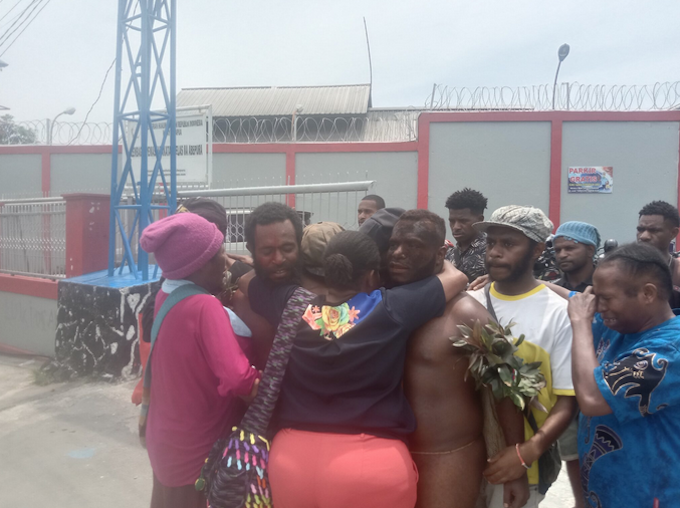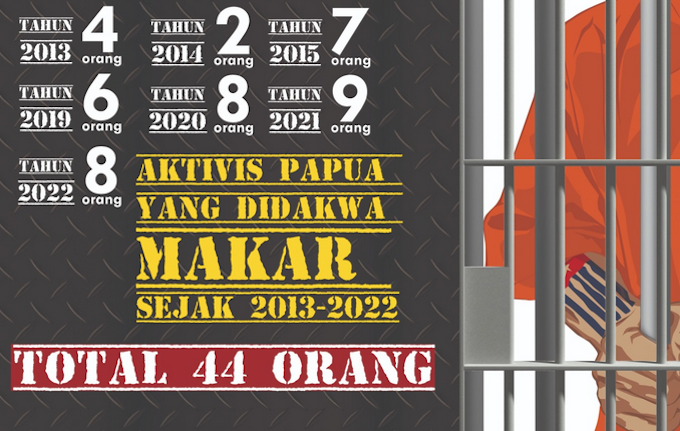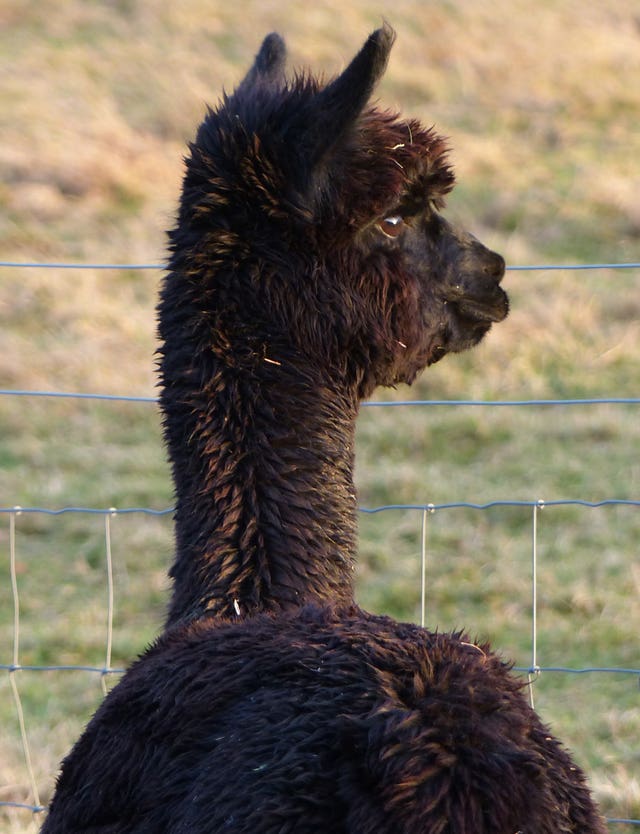Today marks 1 December 1961 when the West Papuan national flag, the Morning Star was first raised and the date has been honoured across the world ever since. The flag was raised by West Papuan legislators who had been promised independence by then-colonial ruler, the Netherlands, but this hope was dashed by Indonesian annexation in 1969. Today marks the 61st anniversary of that first flag-raising. West Papuans raising the flag risk prison sentences of up to 15 years. The following article from Tabloid Jubi newspaper in the Papuan capital Jayapura is part of a five-part series exposing the cruel and inhumane treatment of flag-raisers by Indonesian authorities.
Seven West Papuan makar — “treason” — convicts who were found guilty of raising the Morning Star flag were released on September 27 this year after completing their prison term of 10 months.
Until today, Papua activist and treason convict Melvin Yobe still does not know the result of his medical check-up at Dian Harapan Hospital earlier this year on February 16.
Maksimus Simon Petrus You also doesn’t know what punishment was given to the prison guard who brutally beat him.
- READ MORE: The full five-part article series at Tabloid Jubi [English-language version]
- Part One
- Part Two
- Part Three
- Part Four
- Part Five
Even more disturbing, however, is the fate of Zode Hilapok. He was unable to stand trial as his health continued to deteriorate due to tuberculosis. Zode Hilapok died while undergoing treatment at Yowari Regional General Hospital in Jayapura Regency on October 22.
Since detaining Zode Hilapok on December 2, 2021, law enforcement officials at all levels failed to provide adequate health services for his recovery and he was never put on trial.

Violating human rights
A law faculty lecturer at Cenderawasih University, Melkias Hetharia, says treason charges against Papuan activists violated human rights — namely the right to freedom of speech and expression. He argues the treason law enforced against Melvin Yobe and his seven friends was enacted by the Dutch colonial government to punish coups and revolutions and was based on the experience of the Russian revolution.
Hetharia told Jubi that the enforcement of the Dutch East Indies’ Criminal Code did not consider the social, cultural and philosophical aspects of the Indonesian nation.
“The formation of treason articles in the Criminal Code did not consider aspects of human rights, therefore it is oppressive and injures a sense of justice,” Hetharia said.
He said the term “treason” as regulated in articles 104, 106, 107, 108 and 110 of the Criminal Code had been interpreted very broadly and was not in line with the meaning of aanslag as intended in Dutch, which means “attack”. An attack in that sense was using full force in an attempt to seize power.
“If the term treason in the articles is interpreted not as aanslag or attack, then the articles on treason are indeed contrary to human rights guaranteed and protected in the 1945 Constitution of the Republic of Indonesia,” he said.
In fact, Melvin Yobe, Zode Hilapok, and their six friends are not the only Papuan activists who peacefully protested but have been charged with treason.

From 2013 to 2022, at least 44 Papuan activists have been charged with treason. Among them — from Jayapura District Court data — from 2013 to 2022 there were 31 people, while in Balikpapan District Court in 2020 seven people and in the Central Jakarta Court in 2019 six people.
Treason ‘structural criminalisation’
Emanuel Gobay, director of the Papua Legal Aid Institute (LBH Papua), who is also the legal counsel for Melvin Yobe and his friends, believes the treason charges against Papuan activists are part of a systematic and structural criminalisation.
“The majority of those accused of treason are human rights activists and political activists,” Gobay told Jubi.
Gobay said the Morning Star flag was a cultural symbol of the Papuan people. According to Gobay, these cultural symbols are guaranteed under Papua Special Autonomy Law No, 21/2001.
Gobay said the raising of the Morning Star by Melvin Yobe and other Papuan activists was part of the demand for the government to resolve Papua’s political problems.
“They are asking the state to immediately implement the Special Autonomy Law,” said Gobay.
On that basis, Gobay considered the use of the treason article against Papuan activists as a form of criminalisation. He also emphasised that the raising of the Morning Star flag did not automatically make Papua independent from Indonesia, therefore the element of treason was not fulfilled.
Apart from the controversy on the use of treason legal articles for Papuan activists, the discriminative treatment received by prisoners of treason cases is also inappropriate, argues Gobay.
Prisoners treated badly
Gobay, who often provides legal assistance to Papuan activists suspected or charged with treason, said his clients were often treated badly.
Zode Hilapok’s health condition was the worst of all, said Gobay. During his detention in Abepura Prison, Hilapok’s health condition deteriorated and he lost weight rapidly.
Gobay said Abepura Prison was not suitable for detainees with a history of tuberculosis, such as Melvin Yobe and Zode Hilapok.
“After we surveyed and compared the condition of the prison with the guidelines on handling tuberculosis patients, the prison is not suitable for accommodating prisoners with tuberculosis,” he said.
Minister of Health Regulation No. 67/2016 on Tuberculosis Patient Treatment Guideline states that the treatment centre for tuberculosis patients must be open and have good air circulation and sunlight.
Gobay said the regulation also stipulated that local health offices and hospitals provide special units to treat tuberculosis patients.
“We hope that judges, prosecutors, and hospitals can implement the regulation,” he said.
This report is supported by Transparency International Indonesia (TII), The European Union and the Alliance of Independent Journalists (AJI) in the Anticorruption Residency programme “Reporting Legal Journalism”. It is the final article in a five-part series in Tabloid Jubi and is republished by Asia Pacific Report with permission.
This post was originally published on Asia Pacific Report.
